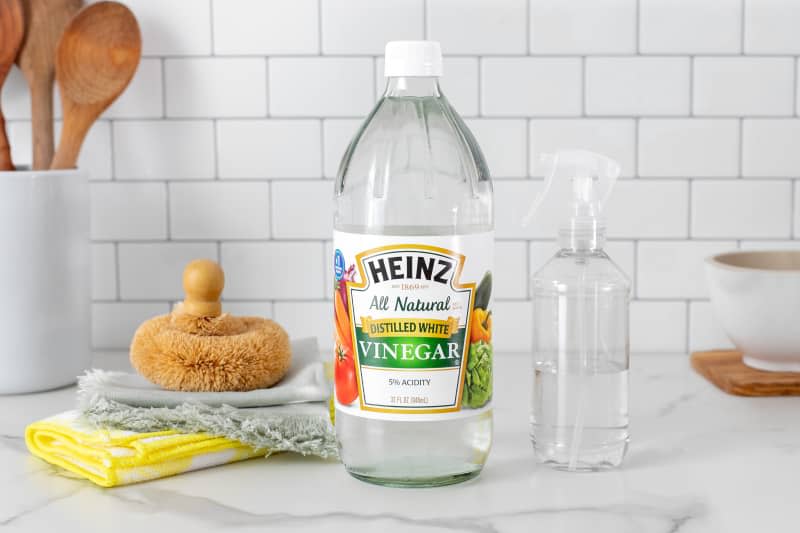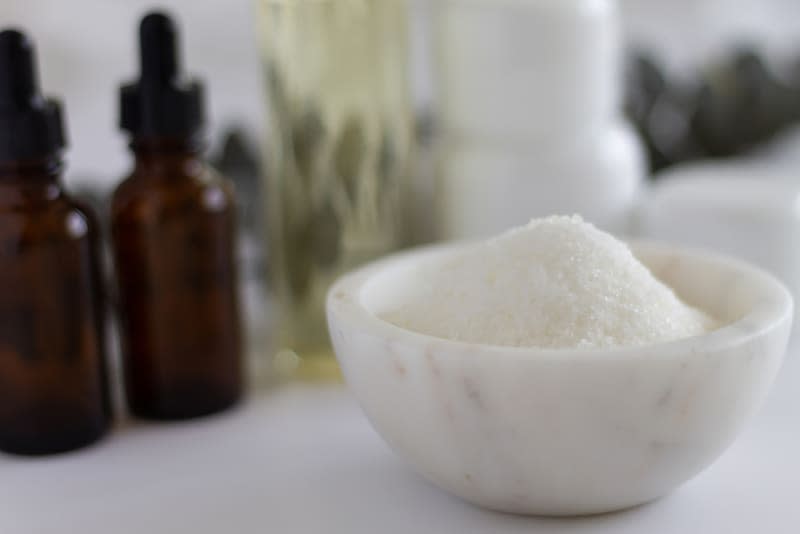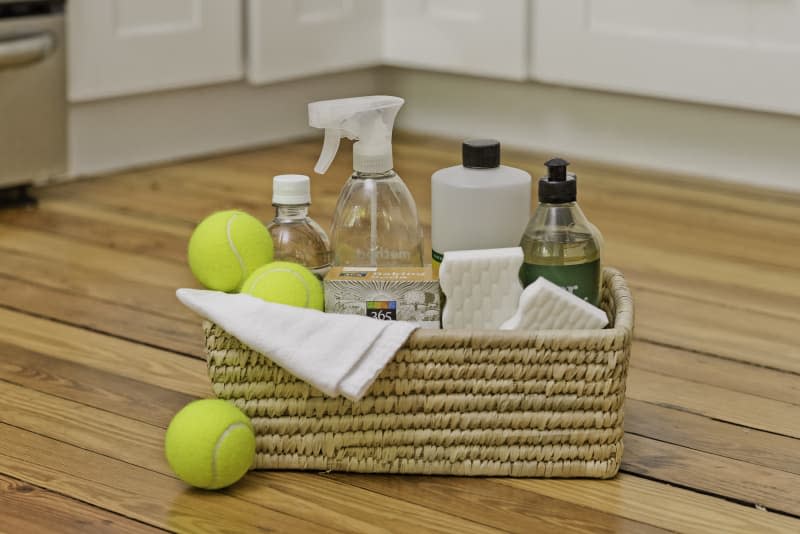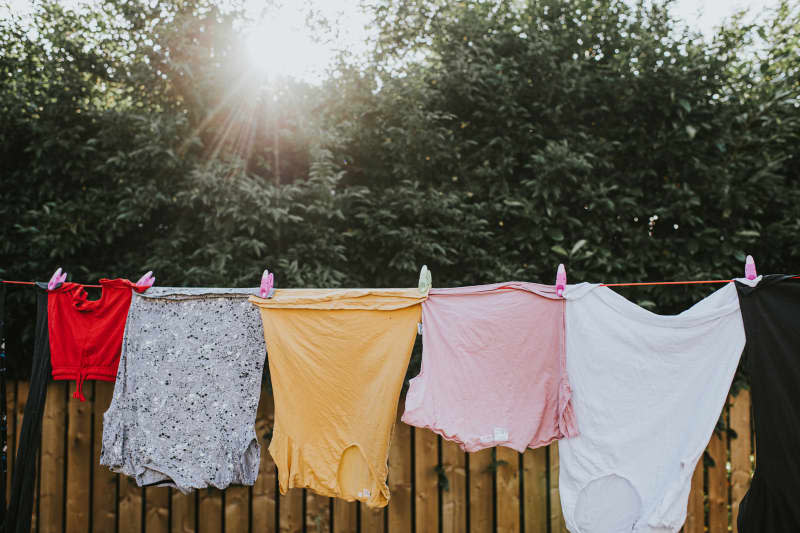8 Fabric Softener Alternatives for Static-Free Laundry

For many people, adding fabric softener to a load of laundry is as important as the detergent itself. This nifty ingredient not only cuts down on wrinkles and static in fabrics, but it can also make your laundry smell amazing.
But if you are sensitive to scents, prefer to ditch the chemicals in liquid softener, or want to stop adding dryer sheets to the landfill, there are other ways of achieving soft, wrinkle-free clothes. We talked with a few laundry experts to get some of the easiest and best fabric softener alternatives. Try one of them the next time you do laundry!

White Vinegar
Vinegar is “an incredible natural fabric softener,” according to Ryan Knoll, owner of Tidy Casa, a maid service in Arizona. “The acetic acid in vinegar removes detergent residues, making the clothes feel softer, and it is perfect for those with sensitive skin like me,” he says, noting that it also works as a deodorizer and mild disinfectant.
All you have to do is pour 1/4 cup into the fabric softener compartment before the last rinse cycle. You can always add in a few drops of essential oil if you prefer, but don’t be worried that your clothes will come out smelling weird; the vinegar dissipates as it dries, says Lina DaSilva from Toronto Shine Cleaning.

Epsom Salt
Turns out that the same stuff that loosens up stiff muscles also loosens up stiff clothing. “A sprinkle [of Epsom salt] in the wash cycle softens the water, which in turn softens your clothes,” says DaSilva, who notes this hack is “especially handy if you’re dealing with hard water issues.”
Will Cotter, COO of FreshSpace Cleaning, also likes Epsom salt because it’s color-safe for clothes. “It’s relatively gentle on most fabrics, making it a safe choice for various types of laundry,” he explains.

Wool Balls
Clothes dry better when they’ve got room to tumble. Add a few wool dryer balls to a dryer cycle, and they’ll keep clothing separate as they bounce around. “They not only soften clothes, but also reduce drying time, which is a nice bonus for both the environment and your energy bill,” says DaSilva. You can even add a few drops of essential oils to the balls before adding them to the dryer for a fresh scent, she adds.

Tennis Balls
Wool balls won’t break the bank, but there’s an even less expensive fabric softener alternative, says Cotter: clean tennis balls. They’ll do the same thing as wool balls, but to avoid your laundry room sounding like an amateur tennis match, he says, “Stick to a max of two balls per load to keep noise level in check.”

Baking Soda
Baking soda is an additive to some detergents for enhanced cleaning power, but it also works as a fabric softener when added before the rinse cycle. “Half a cup of baking soda helps soften water and reduce static,” says Cotter. “It’s natural, doesn’t have any harsh chemicals, and won’t irritate your skin.”

Ice Cubes
Cotter says tossing in a few cubes of ice to your dryer is another easy, natural fabric softener alternative. It’s not much moisture, but it’s enough to help remove wrinkles and soften clothes during dry time, he explains.

DIY Dryer Sheets
Dryer sheets are super easy to use, but they are often frowned upon as not being the most eco-conscious laundry decision. Cotter says you can reap all the benefits and none of the drawbacks when you make your own reusable dryer sheets: Take clean clothing scraps and soak them in a water and vinegar solution, then add them to your dryer.

Air Drying
Perhaps the best hack of all isn’t about adding or doing anything at all, but rather letting nature take its course. Hang your laundry to air dry — in the fresh air, that is. “There’s something about allowing your clothes to dry naturally that maintains their quality and softness,” says DaSilva. “It’s a gentler process, and with the crisp, fresh air doing its magic, it’s like nature’s own fabric softener.

